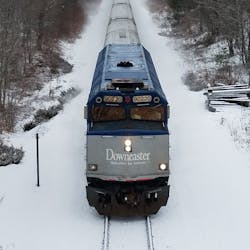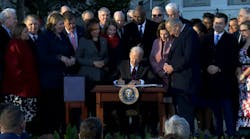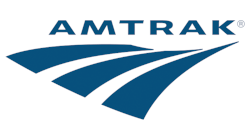Amtrak OIG report offers recommendations for Amtrak to build trust with state partners
A new report published Feb. 2 from the Amtrak Office of Inspector General (OIG) outlines challenges associated with cost sharing on Amtrak’s state-supported routes and makes three recommendations to mitigate them.
Amtrak OIG’s report, Governance: Amtrak Has Begun to Address State Partners’ Concerns About Shared Costs but Has More Work to Do to Improve Relationships, credits Amtrak with addressing longstanding concerns surrounding improved transparency in cost data and better communications with state partners about bill impacts. The report notes there are three areas where challenges persist affecting trust among Amtrak and its state partners. The three areas include:
- Conflicting perspectives between Amtrak and its state partners about control over decision-making and the level of support Amtrak provides to those partners;
- Unaddressed issues with the cost-sharing methodology despite the company’s efforts to improve its ability to directly assign costs to state partner’s trains; and
- Amtrak’s state partners question whether the company has effective quality controls in its cost-calculation and bill-development process and some state partners do not understand the company’s process.
The report says state partners are nearly equally divided among one-third that have high trust in Amtrak surrounding cost-sharing issues, one-third with moderate trust and one-third with low trust.
“Trust has become a self-perpetuating problem, with low-trust partners interpreting the company’s actions through that lens and leading them to take actions to protect their interests. The resulting tensions have consumed significant time and effort and ultimately may hinder progress on issues beyond cost sharing, like improving and expanding service,” the report says.
State-supported routes accounted for nearly half of Amtrak’s pre-pandemic ridership and about one-quarter of its total revenue. Amtrak also has plans to expand service in the coming years to as many as 16 new states and 160 new communities. Additionally, language included in the Infrastructure Investment and Jobs Act, which was signed into law in November 2021, directs cost-sharing methodology be revised by March 21, 2022. Amtrak told the OIG that it is using these negotiations to begin working on the challenges it identified in the report.
The OIG offered six recommendations to capitalize on the ongoing cost sharing review, including that Amtrak coordinate with state partners and the Federal Railroad Administration (FRA) to clarify which decisions affecting states’ costs the company must control and the level of support the company can provide. The report recommends Amtrak clarify and document decisions about the relationship between costs and service and how to handle capital costs. The third recommendation is that Amtrak take steps to better assure state partners that their bills are accurate, such as documenting the cost-calculation and bill-development process and sharing this information with them.
Amtrak’s full response to the report is shared within an appendix and in summary, the railroad agrees with the recommendations made. Amtrak has taken steps to address the challenges, including working with the State-Amtrak Intercity Passenger Rail Committee (SAIPRC), state partners and FRA to clarify and document the policies and services that the company believes it must control, the basis for its cost-calculations and other documentation specifying the company's systems for implementing the methodology. The company also identified actions to provide state partners with assurance that its bills are accurate, including working with SAIPRC to track billing errors and ensuring that an independent third party validates the company’s systems.
“Management appreciates the opportunity to respond to the OIG’s recommendations. Our state partners are crucial to the future growth of corridor service across the National Network and we are working diligently to improve our relationship with them,” Roger Harris, Amtrak executive vice president marketing and revenue, wrote in Amtrak’s response to the report.
The full report is available for viewing on the Amtrak OIG website and is linked here.

Mischa Wanek-Libman | Group Editorial Director
Mischa Wanek-Libman is director of communications with Transdev North America. She has more than 20 years of experience working in the transportation industry covering construction projects, engineering challenges, transit and rail operations and best practices.
Wanek-Libman has held top editorial positions at freight rail and public transportation business-to-business publications including as editor-in-chief and editorial director of Mass Transit from 2018-2024. She has been recognized for editorial excellence through her individual work, as well as for collaborative content.
She is an active member of the American Public Transportation Association's Marketing and Communications Committee and served 14 years as a Board Observer on the National Railroad Construction and Maintenance Association (NRC) Board of Directors.
She is a graduate of Drake University in Des Moines, Iowa, where she earned a Bachelor of Arts degree in Journalism and Mass Communication.





